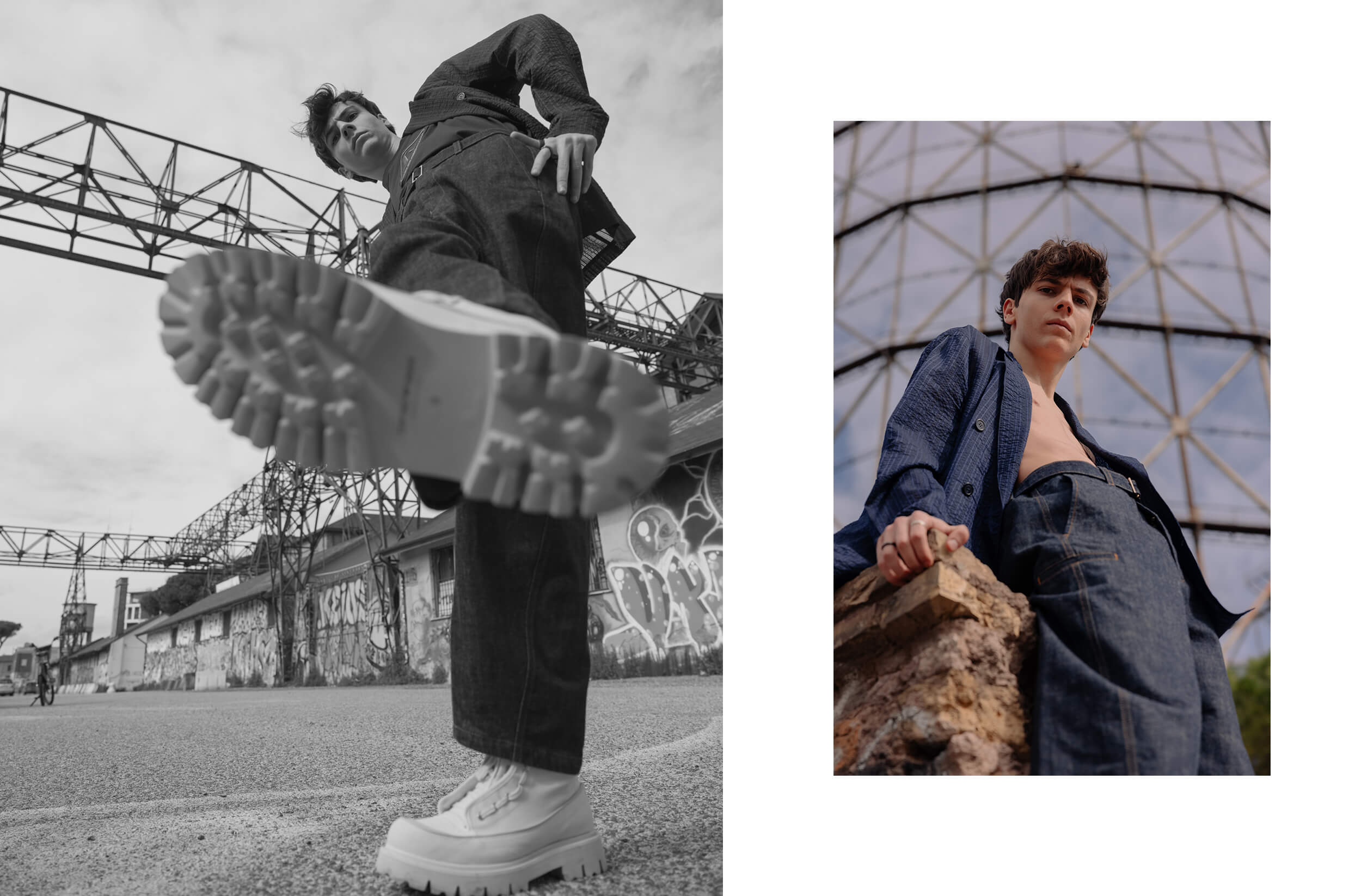Among the protagonists of the Rai Uno television film “A muso duro”, about the story of the founder of the Paralympics, Francesco Gheghi is as strong as to be able to bear the weight of huge responsibilities on his shoulders, like that of narrating real-life stories with respect and courage, tackling delicate and little-discussed themes, especially in Italy, putting up scenarios that might be very far from us.
Francesco is as strong as to bear the weight of family stories, broken balances, and unearthed relationships, like the ones narrated in “Il filo invisibile”, a movie by Marco Simon Puccioni which won a Nastro D’Argento award and is currently available on Netflix.
From his first time on screen next to Elio Germano, going through a few anecdotes from the set of “Padrenostro”, up to his new projects, such as “Piove” by Paolo Strippoli, coming soon in theaters, Francesco showed us his desire to be grateful for life, following very useful advice for both work and everyday life: to “adhere” to characters and the people who make us feel good.
What’s your first cinema memory?
“Once Upon a Time in America” on the couch with my dad.
Do you remember a specific event or moment where you realized you wanted to be part of the world of cinema?
Besides the fact that I used to perform in theater and like it so much, one precise moment was on the set of “Io sono tempesta”, my first movie, and there was Elio Germano acting; in that moment, I looked at my mother and said: “I want to do what Elio is doing”, which meant that I wanted to be in all the scenes.
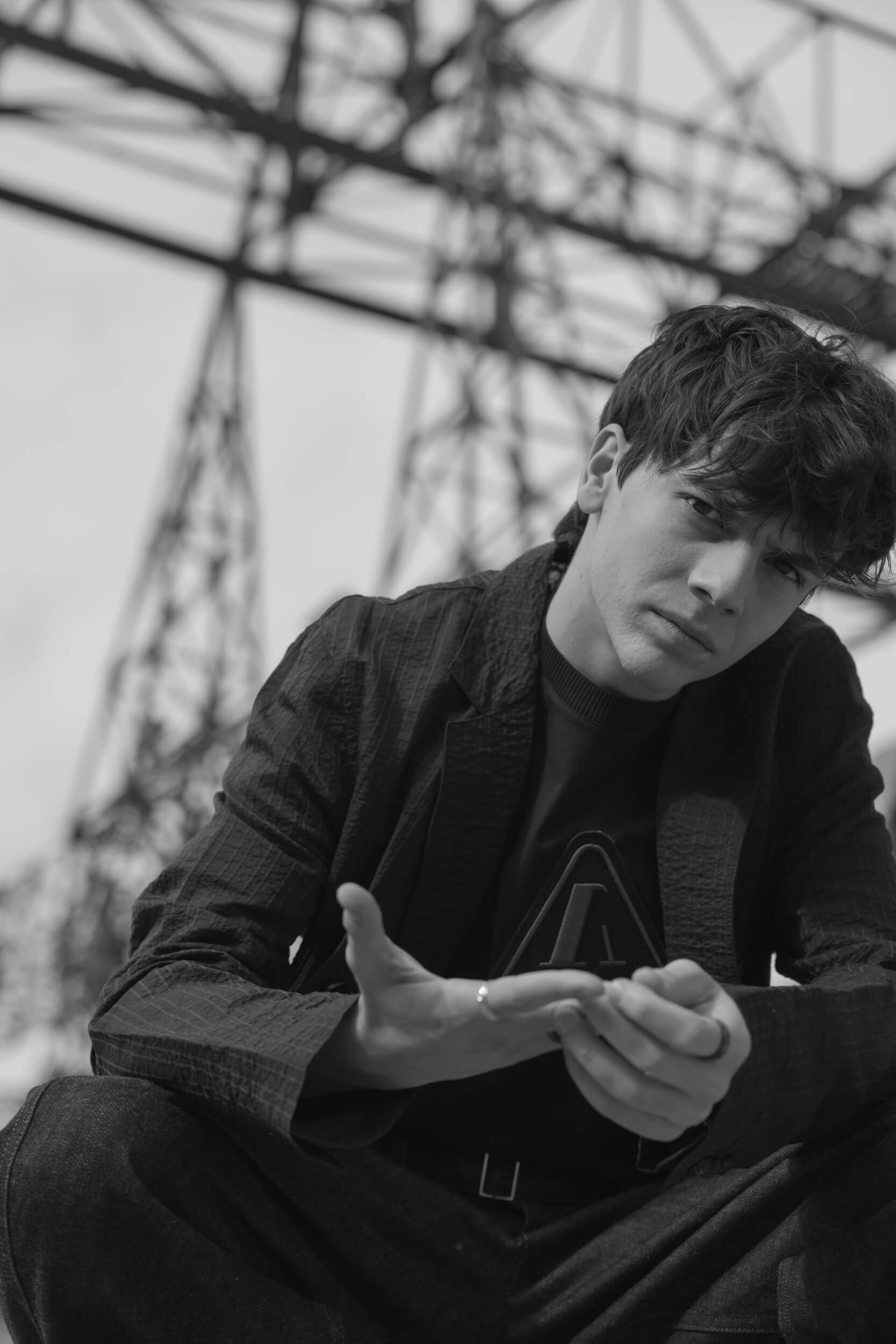
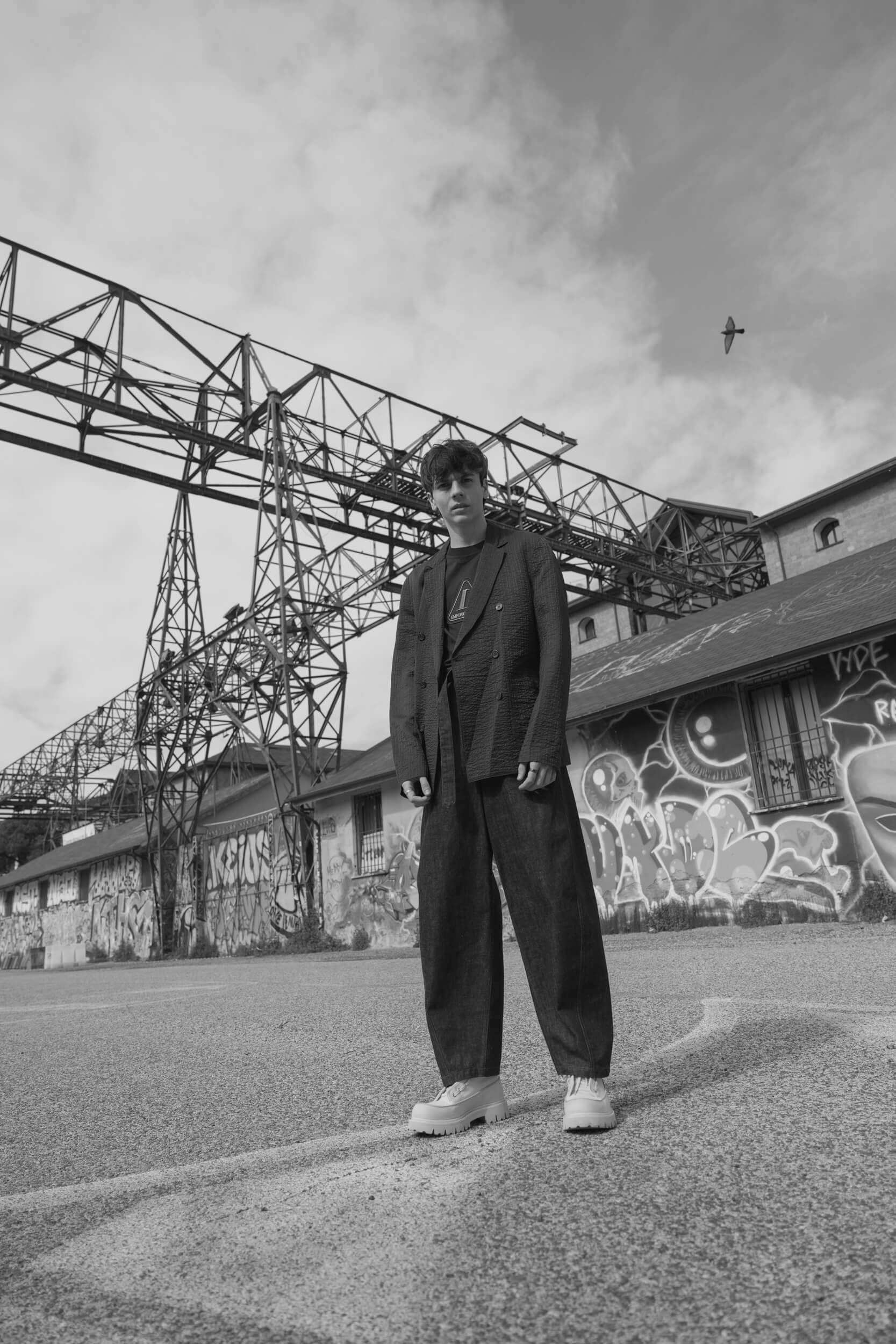
You’re one of the protagonists of “A muso duro”, the Rai Uno television film about the founder of the Paralympics. The movie tells the story of doctor Antonio Maglio (Flavio Insinna), the physician and head of Inail who’s dedicated his life to the recovery of disabled people. What was your experience on set like and how did you face the challenge of representing such an essential piece of history?
It was a wonderful experience, it gave me the opportunity to meet some strong, amazing people. Anyway, I felt a massive responsibility on my shoulders because it’s a delicate topic that we need to tackle with respect; it’s not easy to put up such a film because it’s set in the 1950s, but this is what’s nice about cinema: it gives you the chance to tell stories that are so far from you.
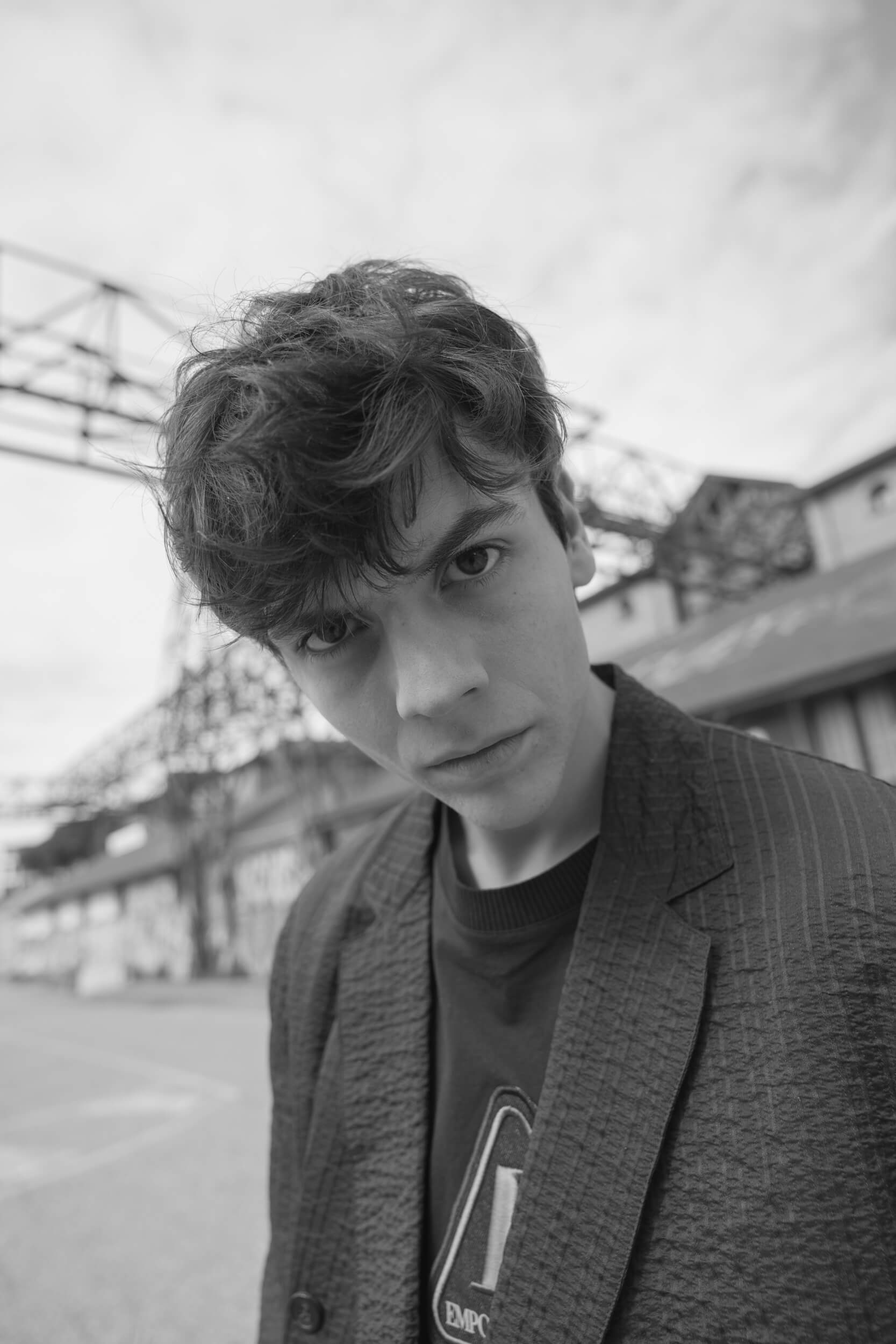
“… this is what’s nice about cinema: it gives you the chance to tell stories that are so far from you.”
How did you approach your character? Did your preparation process include research, documentation, confrontations with the director, Marco Pontecorvo, and the rest of the cast?
Exactly. My preparation process did include research and documentation; I talked a lot with the director, Marco Pontecorvo, who’s been a maestro for me. With the rest of the cast, we did such an important job, and then, what trained us was the possibility to meet paraplegic kids who told us about their experience: we tried to do their workout sessions, which was very helpful.
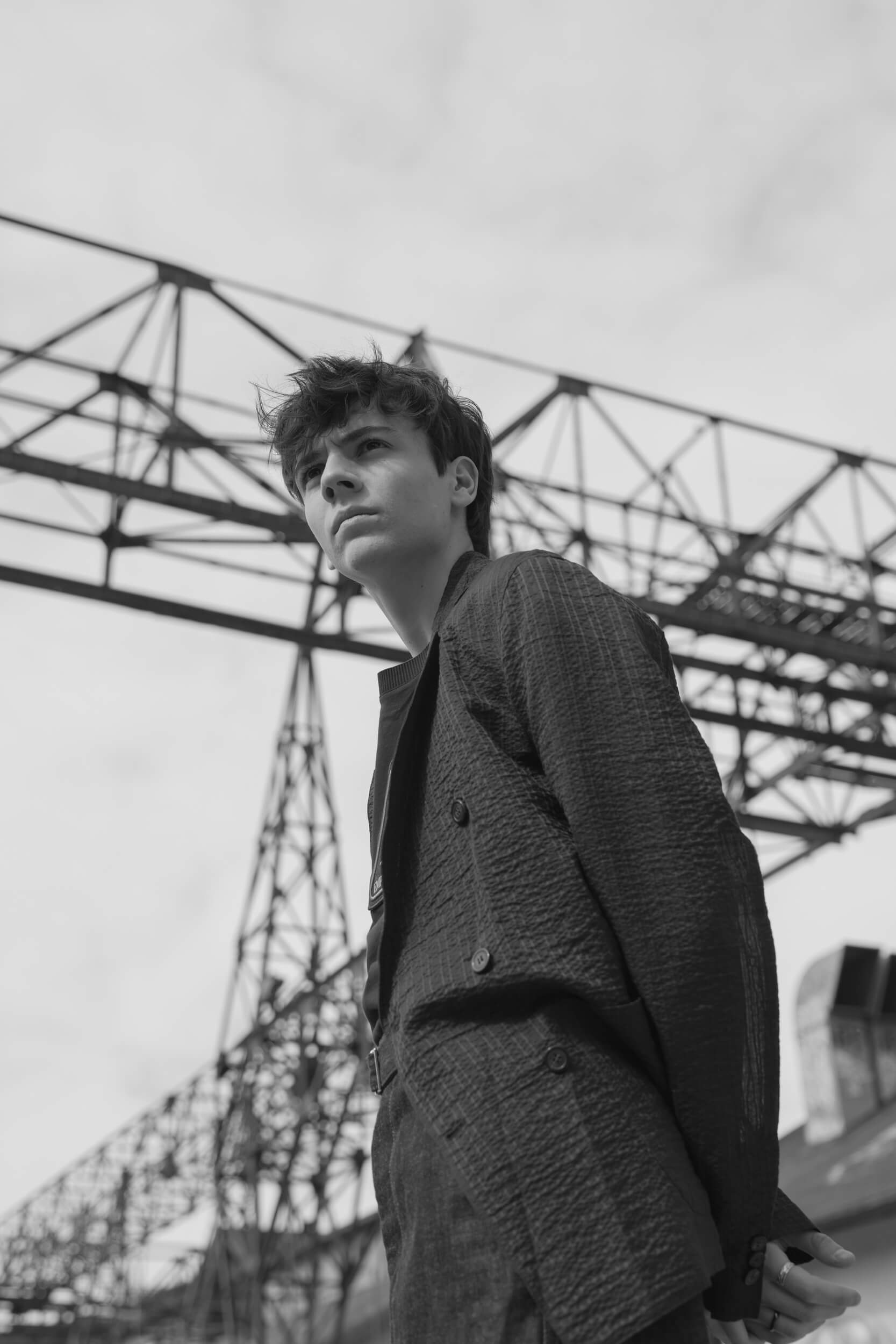
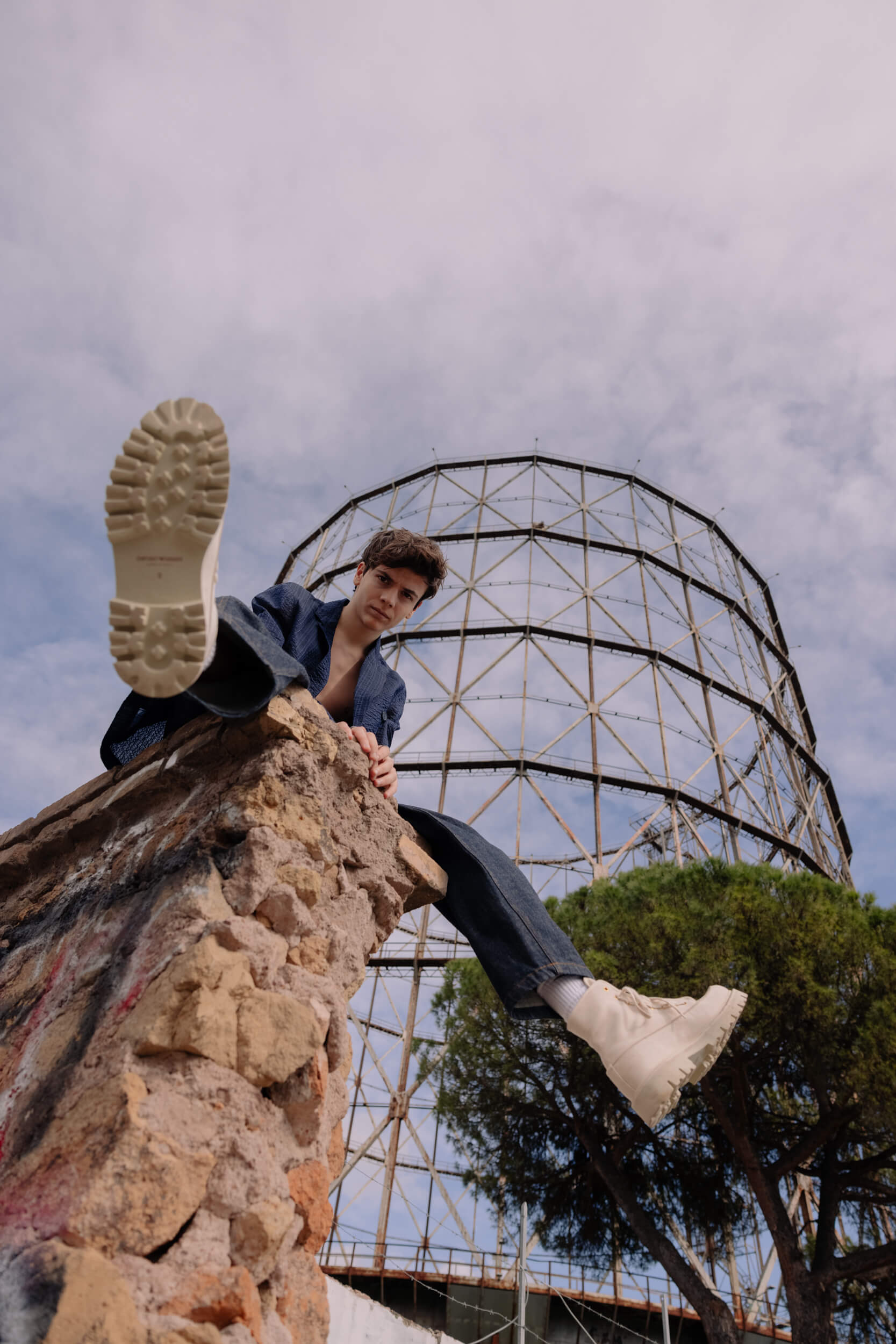
Did you discover anything new about yourself, delving into this story and telling it yourself?
I discovered I’m fortunate and grateful for life, and I realized that I have a big responsibility because I was lucky enough to be born and able to do things that many other people can’t do and not because of meritocracy.
How would you describe “A muso duro” in one word?
I’d use the word “personality”.
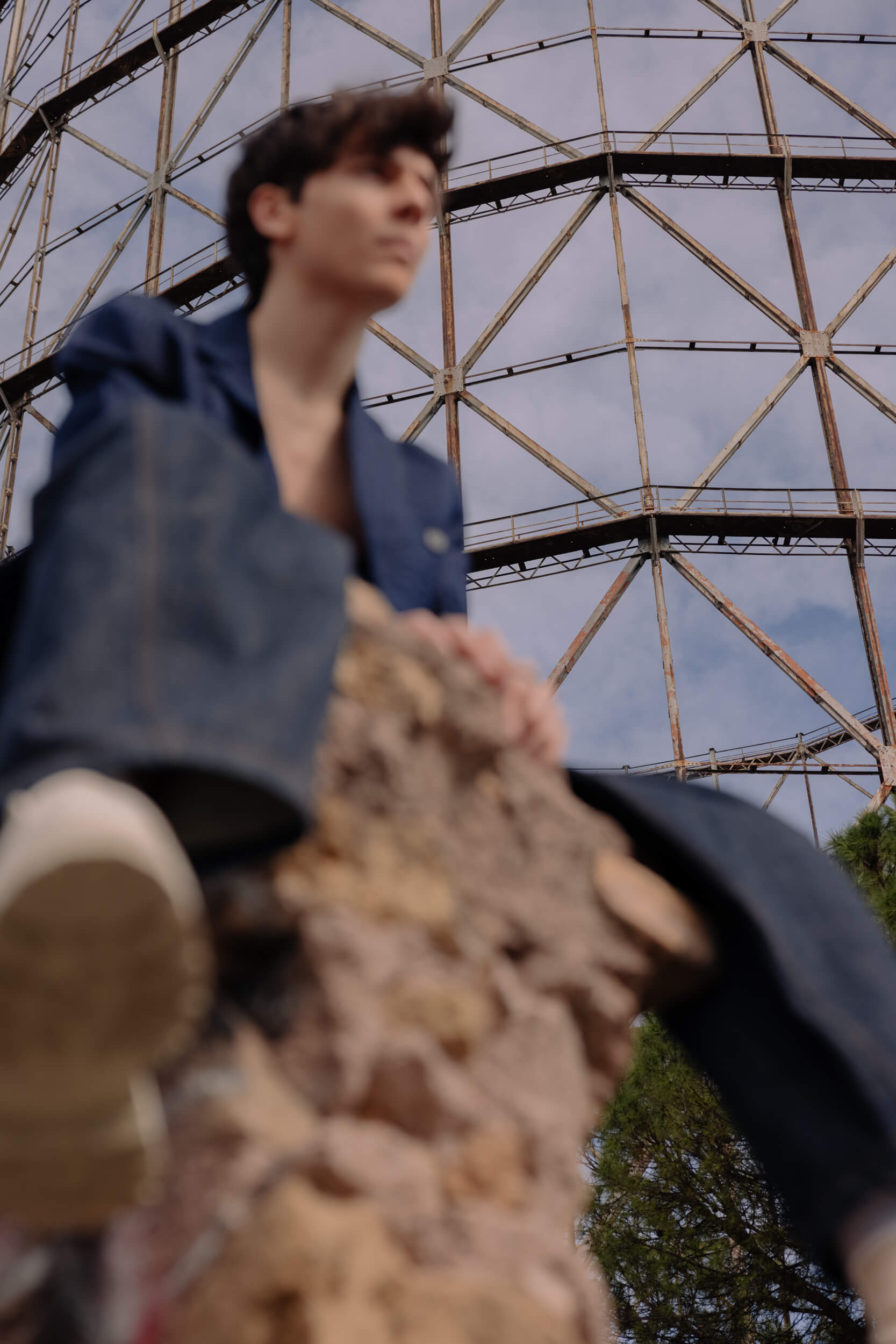
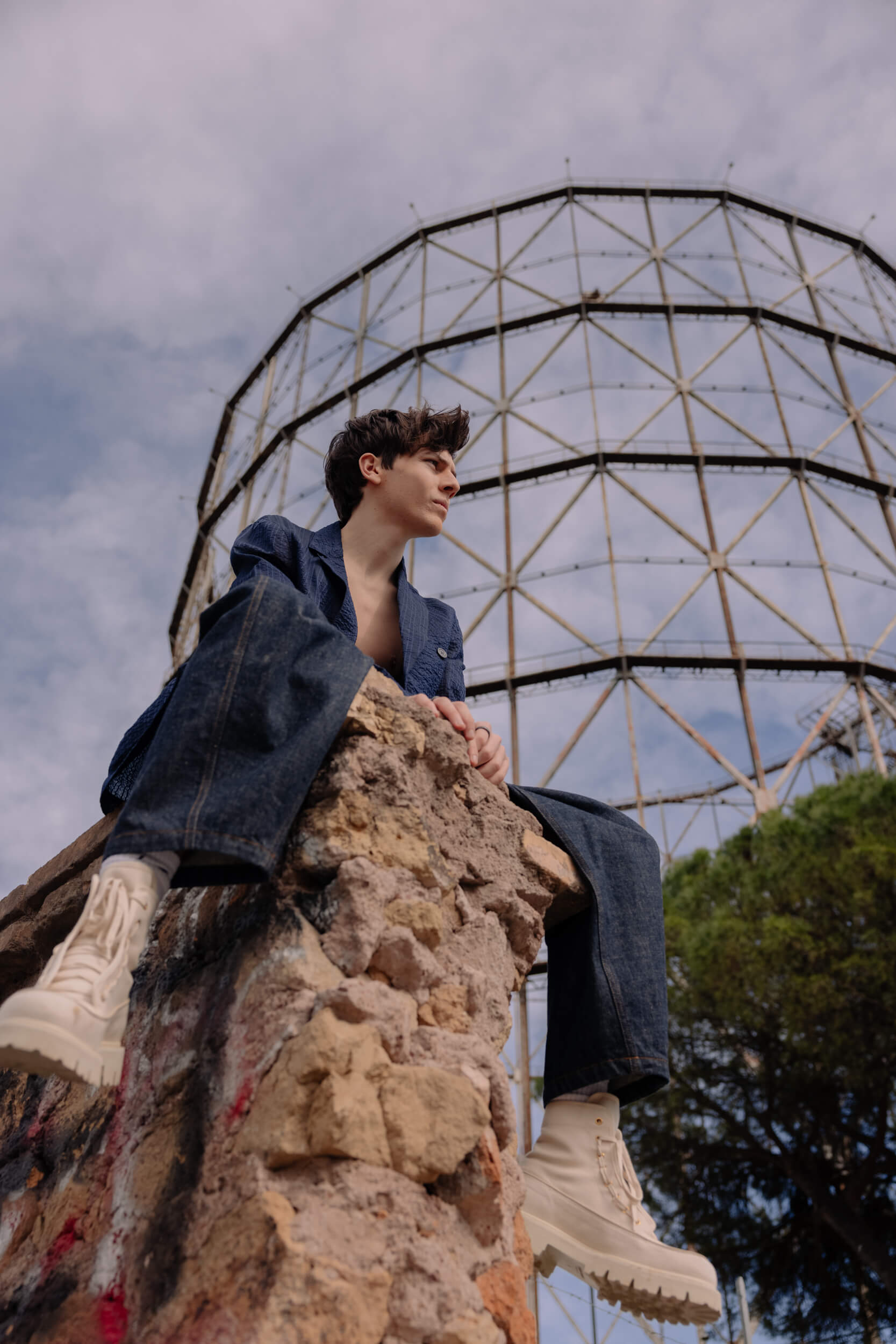
“Family is a happy choice, not a necessity” – this is the caption under one of your Instagram posts where you promote a very interesting project of yours called “Il filo invisibile”. The movie by Marco Simon Puccioni, which won a Nastro D’Argento award and it’s currently available on Netflix, tells the story of a broken family balance, upset by a marital betrayal episode. What does family represent to you and what, in the same way as betrayal in the storyline, can be so strong as to destroy harmony?
To me, family is everything.
Family is home, it’s your safe place, your happy place, it’s where you feel protected and calm. I prefer not to think about what can be so strong as to destroy the balance of a family, it doesn’t matter to me.
I feel a heavy responsibility on my shoulders because it’s a very delicate theme, rarely discussed in Italy because we’re afraid to talk about it. I had the chance to meet Marco Simon Puccioni’s children, to ask them questions, even to ask them uncomfortable questions; the answers they gave me were the same I would have given myself if they’d asked me what family means.
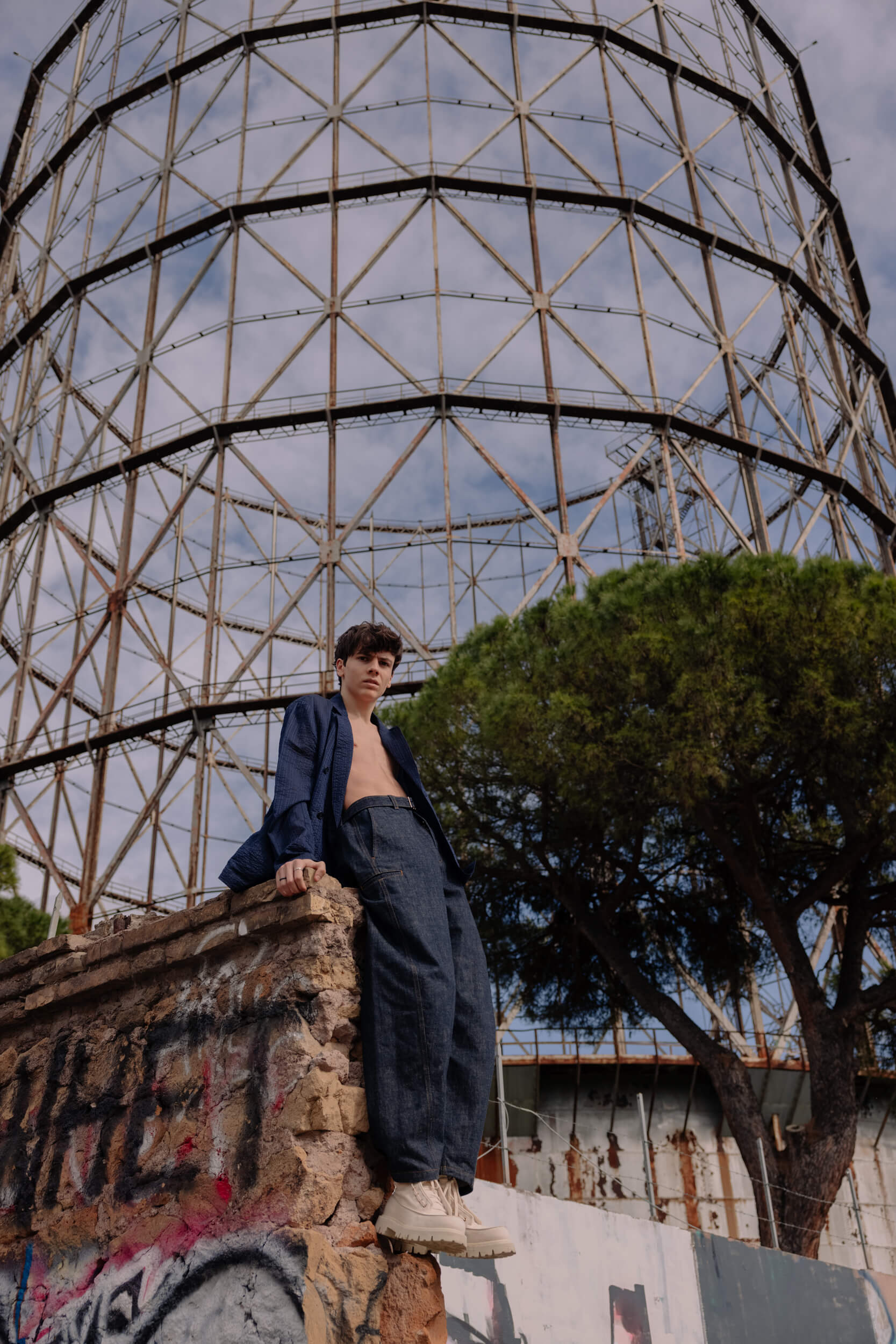
“Family is home, it’s your safe place, your happy place, it’s where you feel protected and calm.”
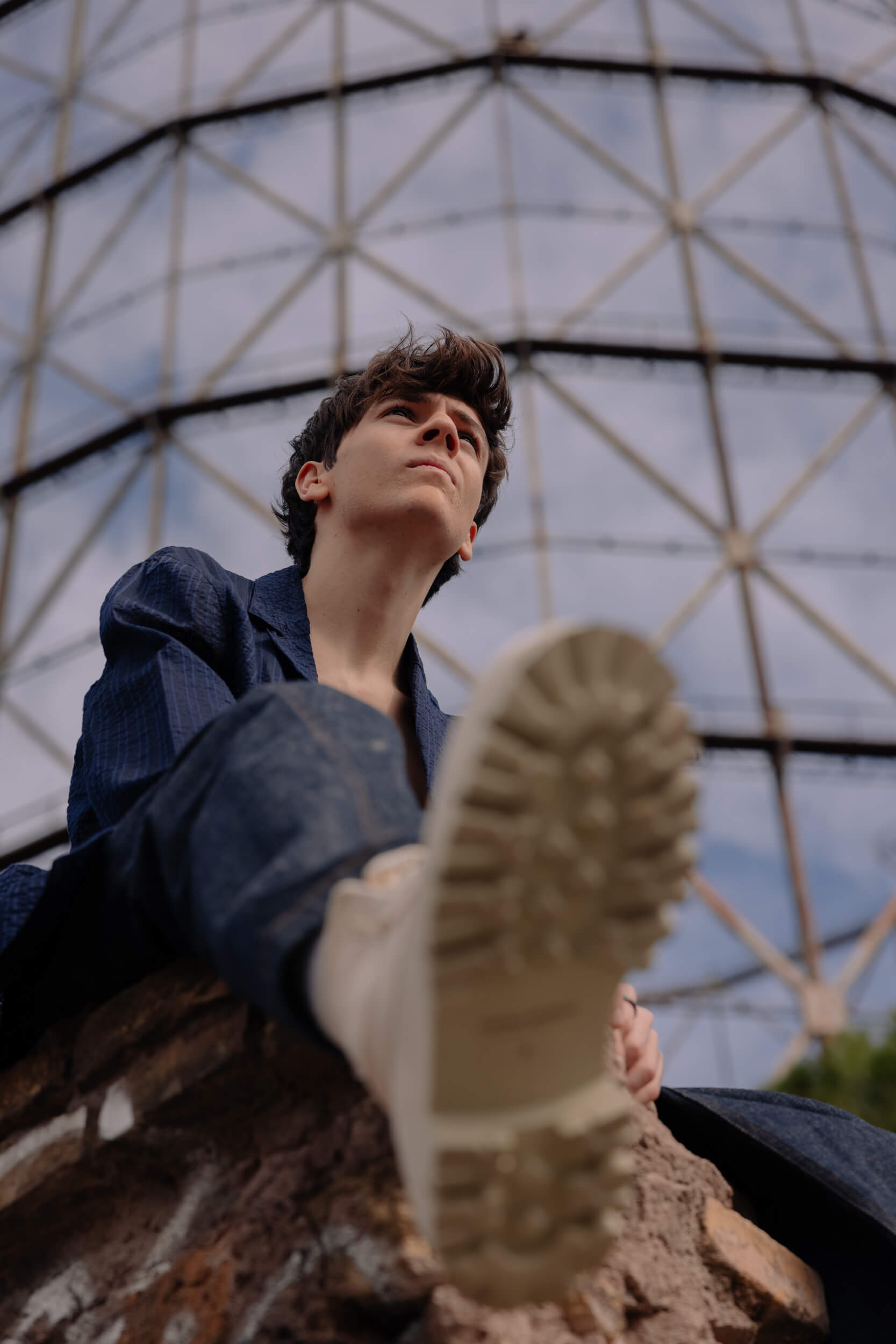
The movie tells atypical family dynamics, focusing on a complicated subject, that of double paternity: what was your reaction when you read this script, and is there any lesson you learned from the story?
My first thought after reading the script was great excitement because I really wanted to tell that story; it taught me to be brave, not to fear doing what I want to do, and always with respect and politeness towards everyone.
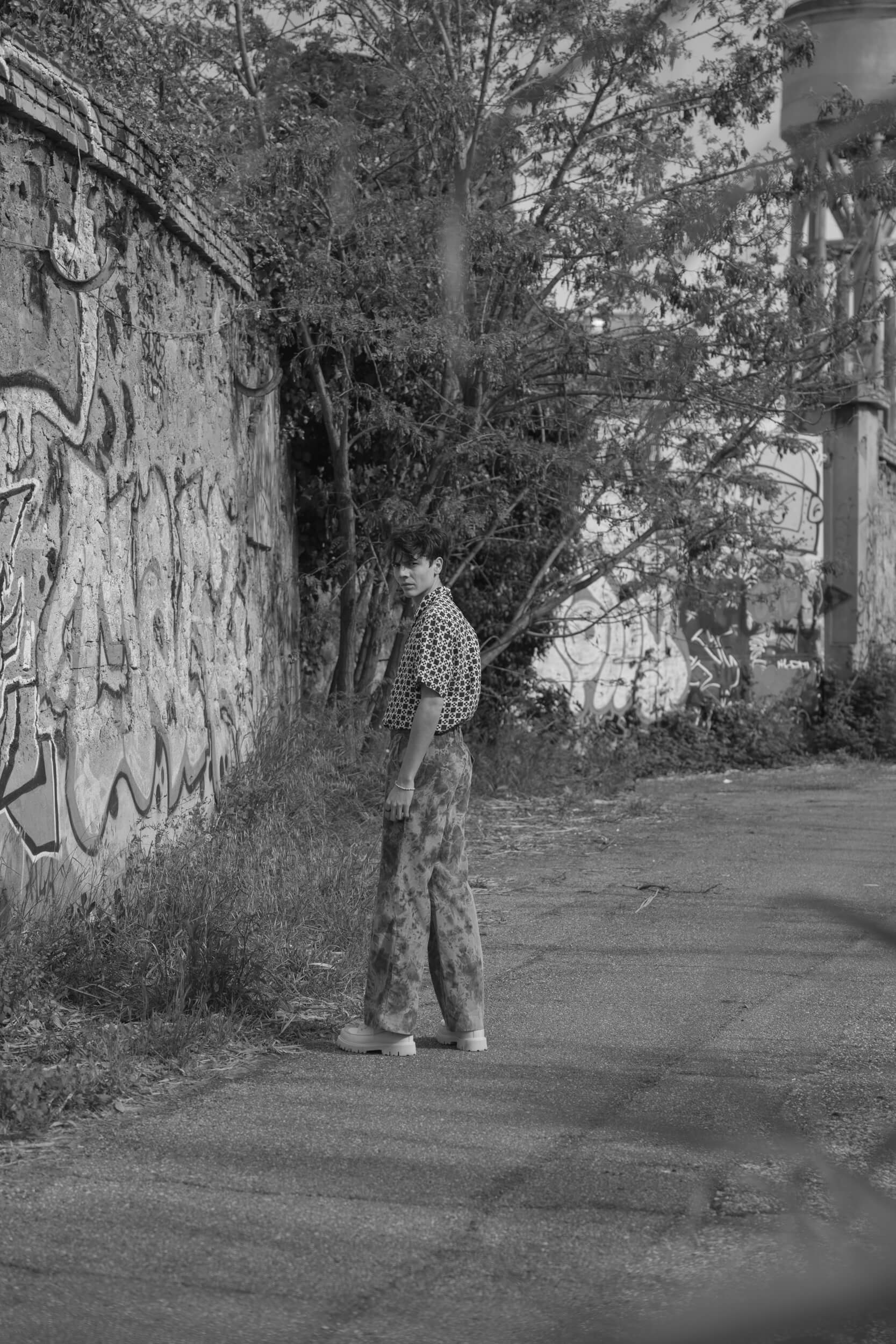
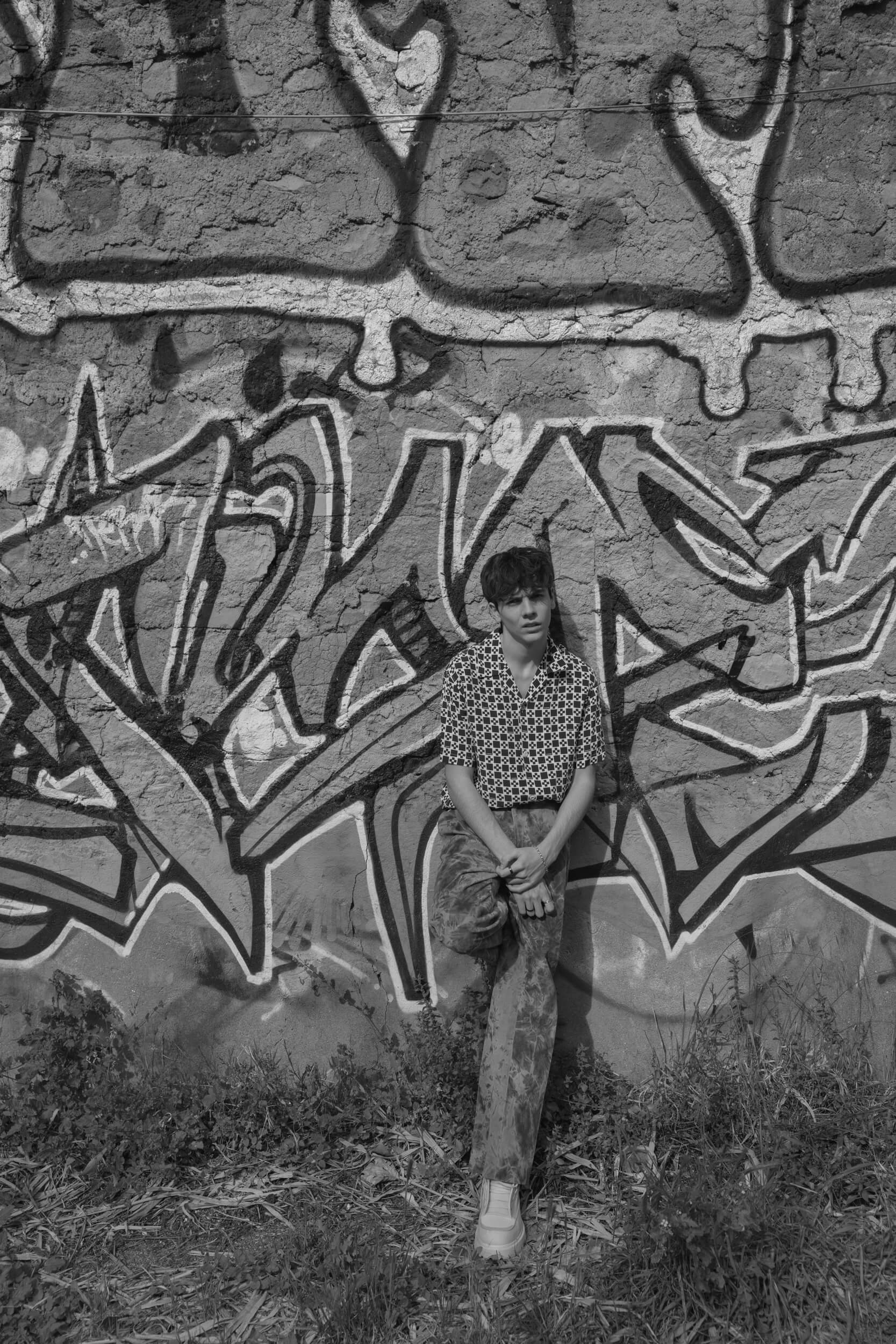
What was the hardest and most fun scene to shoot?
The hardest scene, maybe, was the one with Scianna and Timi, when they tell me that none of them is my biological father: that was a punch in my guts because, on an emotional level, I had to bring out several thoughts and feelings.
The most fun scene was the one of the dinner, again with Scianna and Timi, as I had the chance to look at two professionals and two amazing people at work, and it was so cool, I had so much fun.
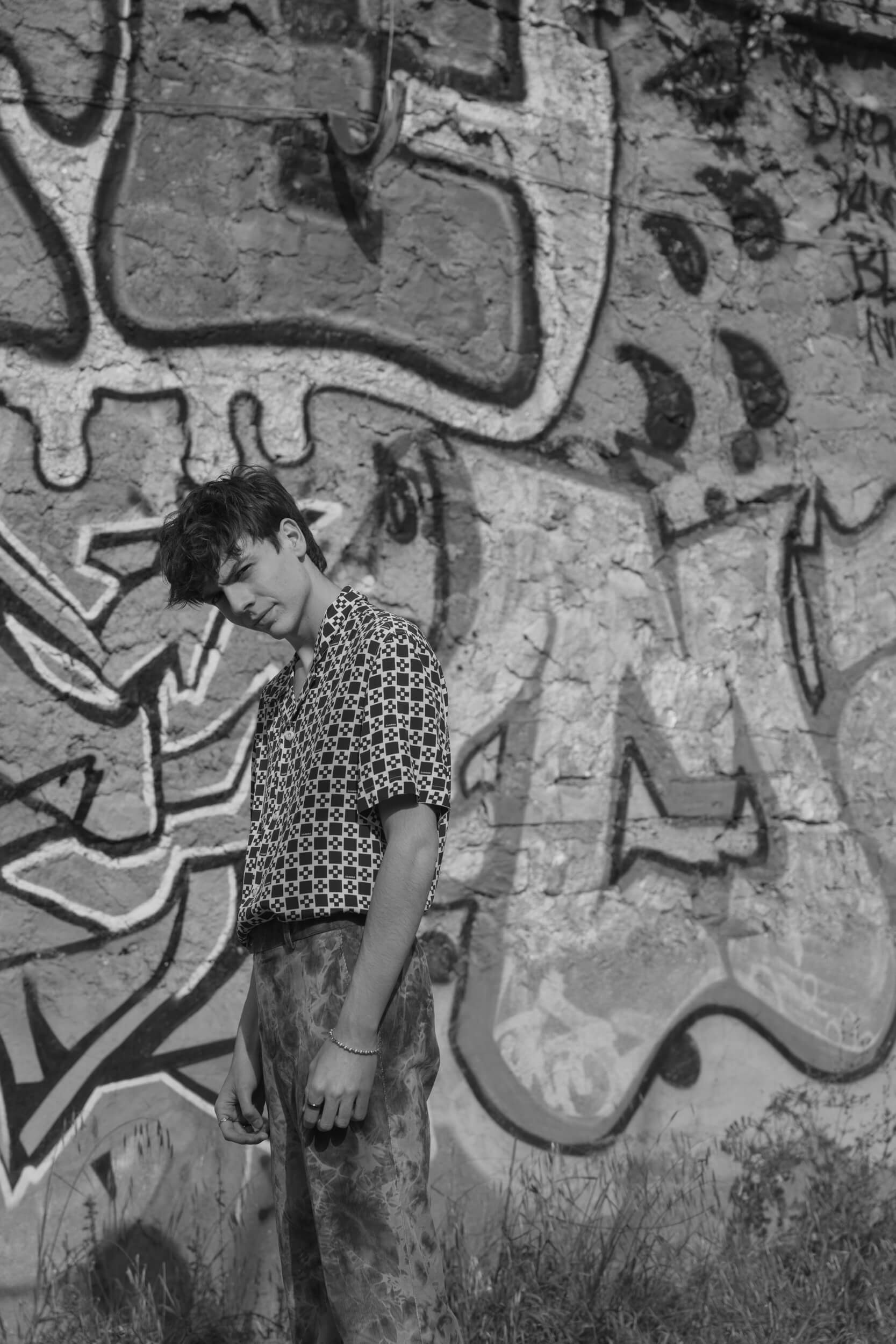
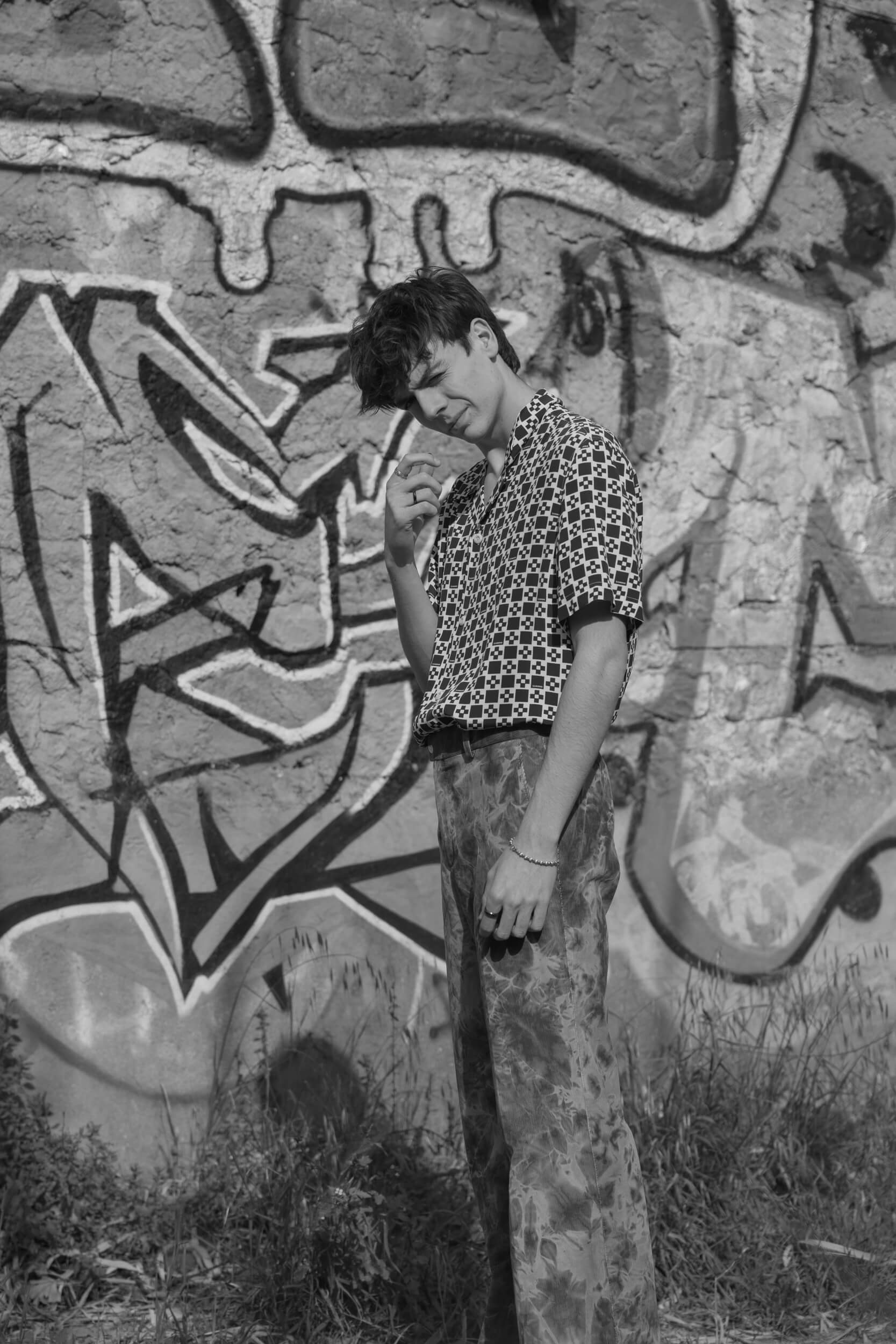
Another project of yours, coming soon on the screens, is “Piove” by Paolo Strippoli, set in a polluted Rome, on the verge of exploding because of gases and mysterious muds. An exasperated situation, which is not even too far from reality. What was it like to face this other important and, under certain aspects, current theme? What’s the role of your character in the story?
In “Piove” I play Enrico Morel, a crazy, masochist guy, in search of attention, who finds himself overwhelmed by grief, because of the death of his mother. The movie talks about anger, and frustration, also for futile reasons, and it speaks about miscommunication between people, in the family, and the relationship between a father and a son who will be pushed too far, up to turning into a war.
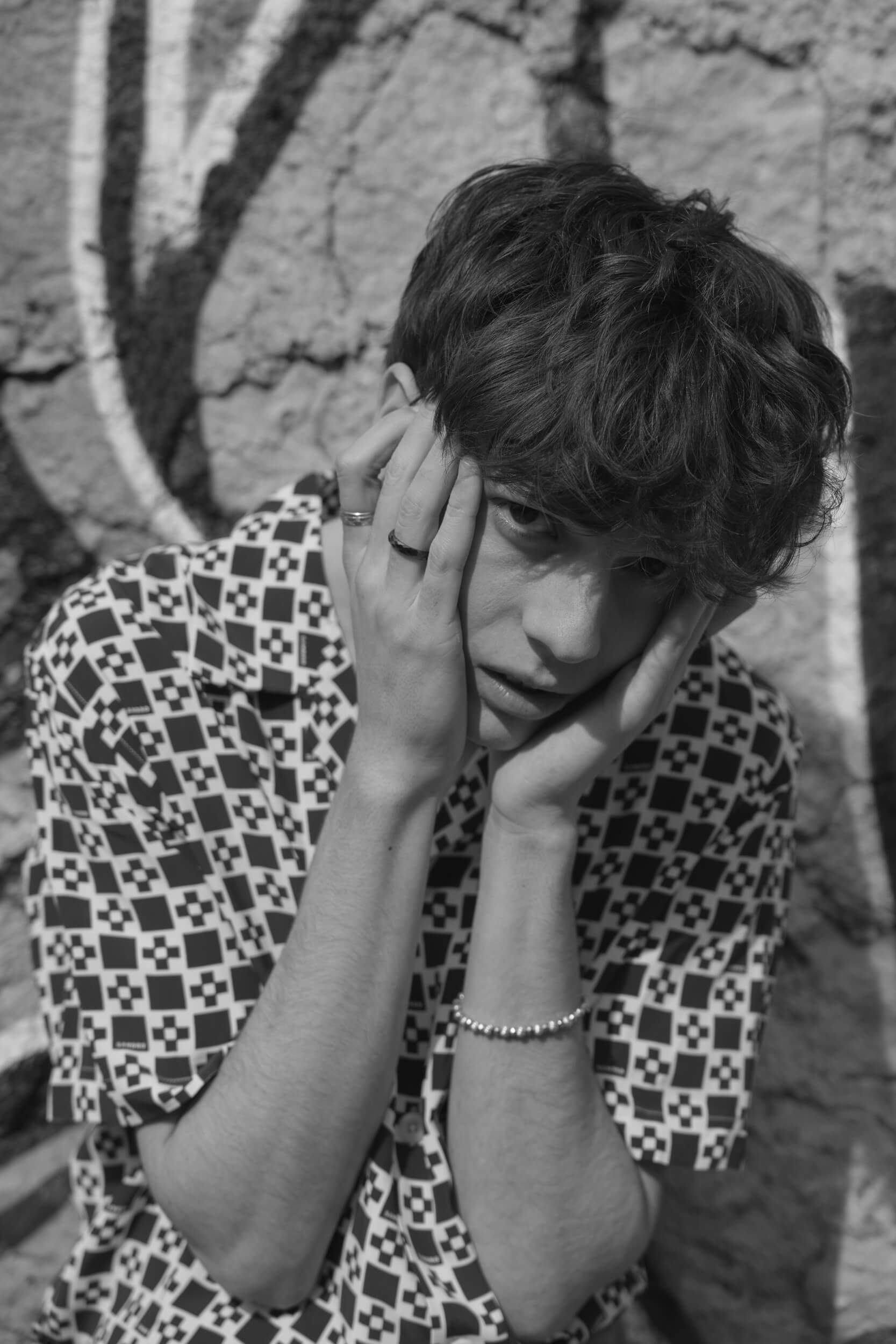
What makes you say yes to a project?
Easy, the money! [laughs] No, I’m joking.
The storyline, the director, the possibility to tell beautiful stories, to work with formidable actors and directors.
When you build a character, are you more rational or instinctive?
I’m a mix: I’m both rational and instinctive, I do a lot of research and dig deep inside of myself, and I try and bring a piece of me into the story.
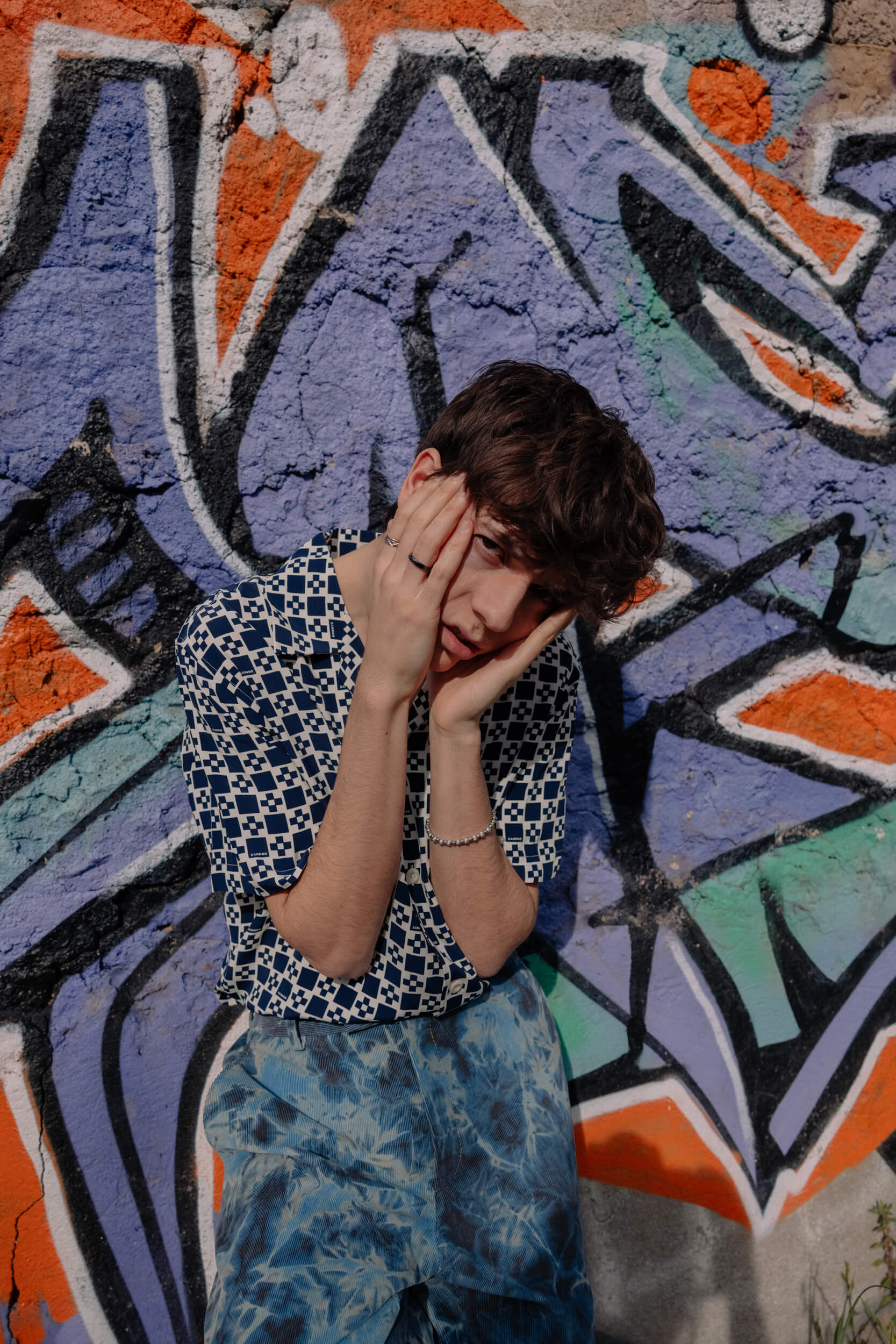
What is the worst and the best advice they’ve ever given you?
The best advice they’ve given me is to adhere to other people and so with the character that I’m about to play, and with the other characters with whom I need to interact. The worst advice they’ve ever given me was when, during a very emotional and important scene, they told me:
“Think about your grandpa dying, I guess!”.
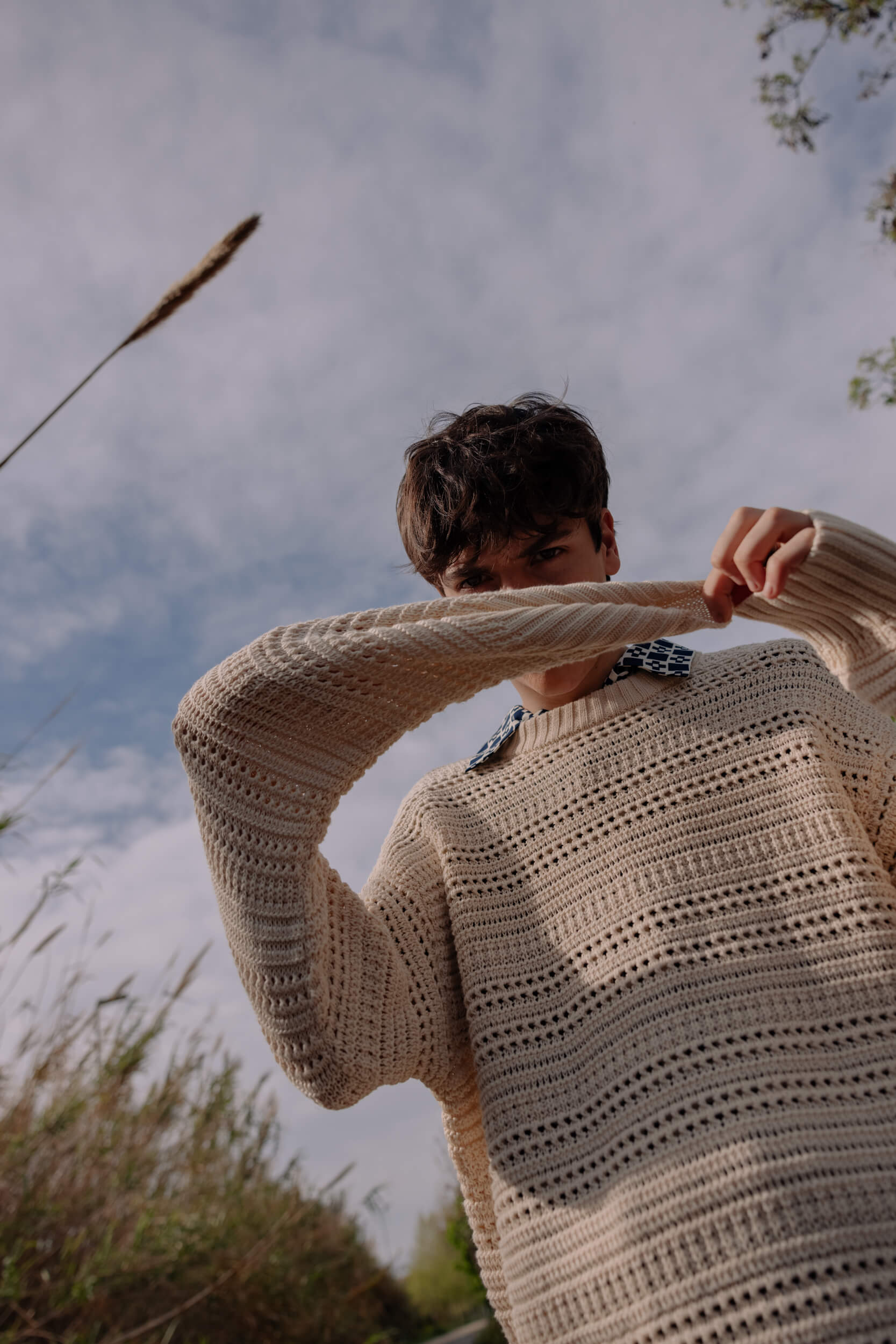
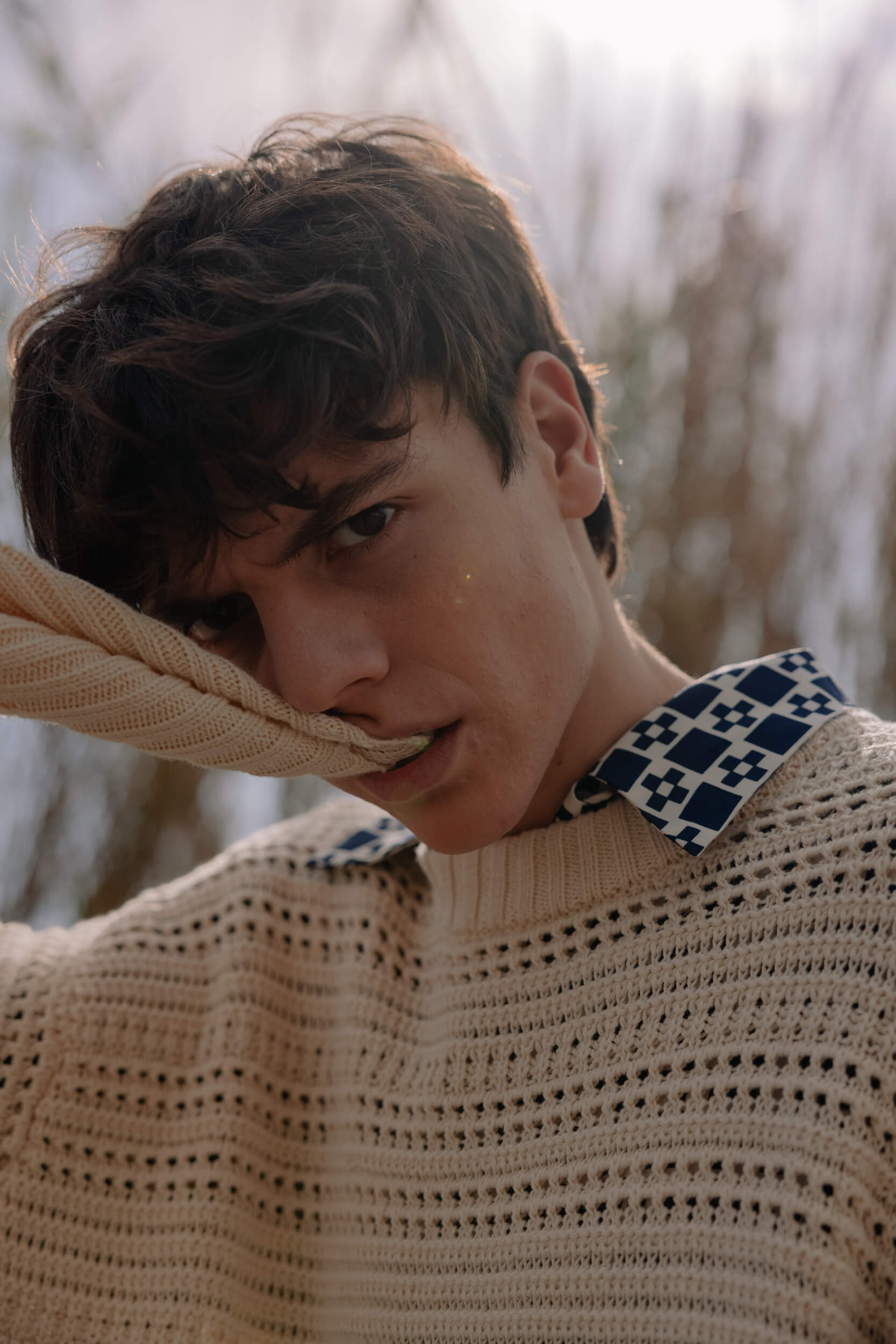
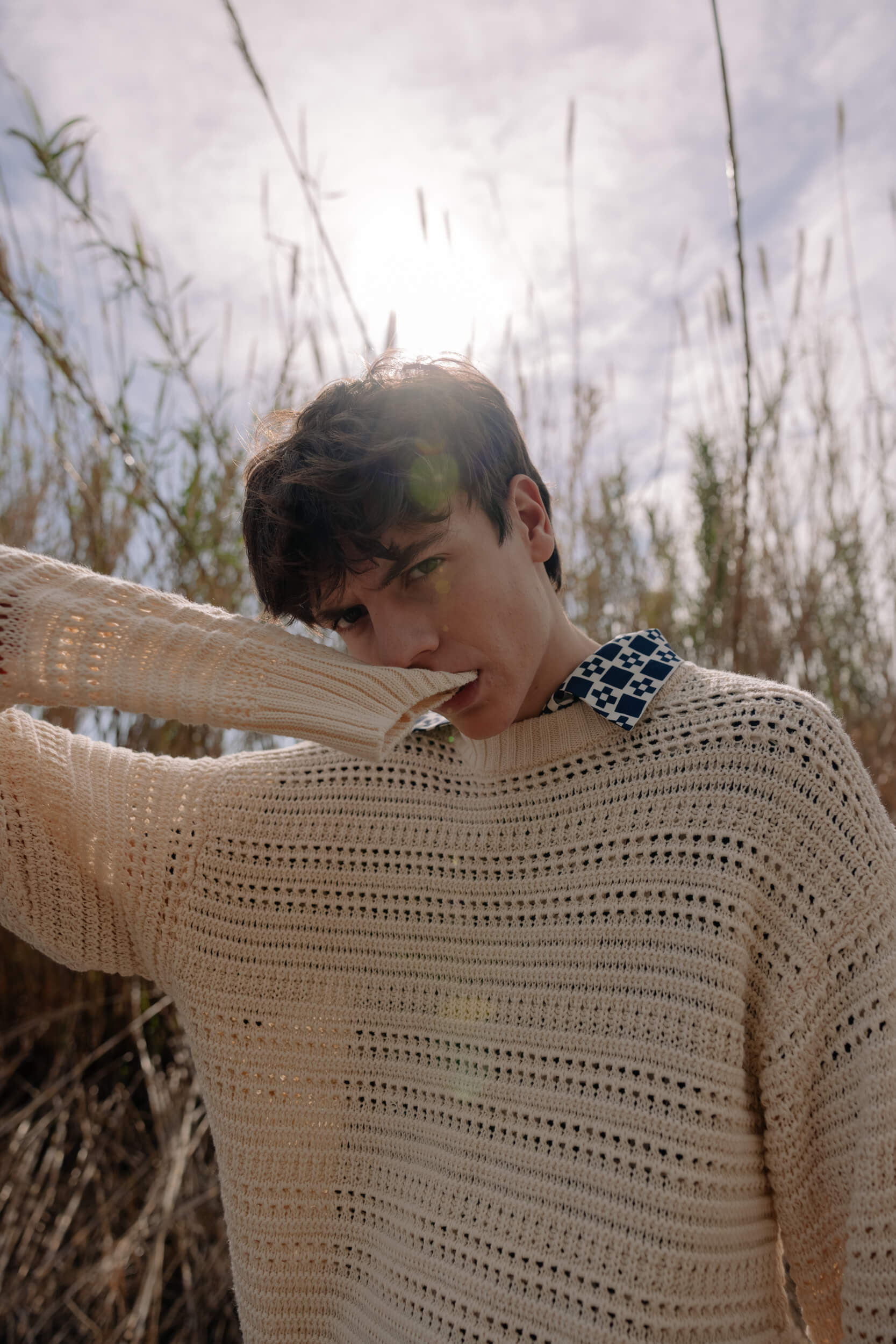
What inspires you on the job, but also in your everyday life?
My grandma always says: “Go out with nice people, who can give you something”. So, whoever can give me something nice and important, can inspire me.
At work, Sergio Leone, De Niro, and Tom Hanks; in life, my mom, my dad, and my friends.
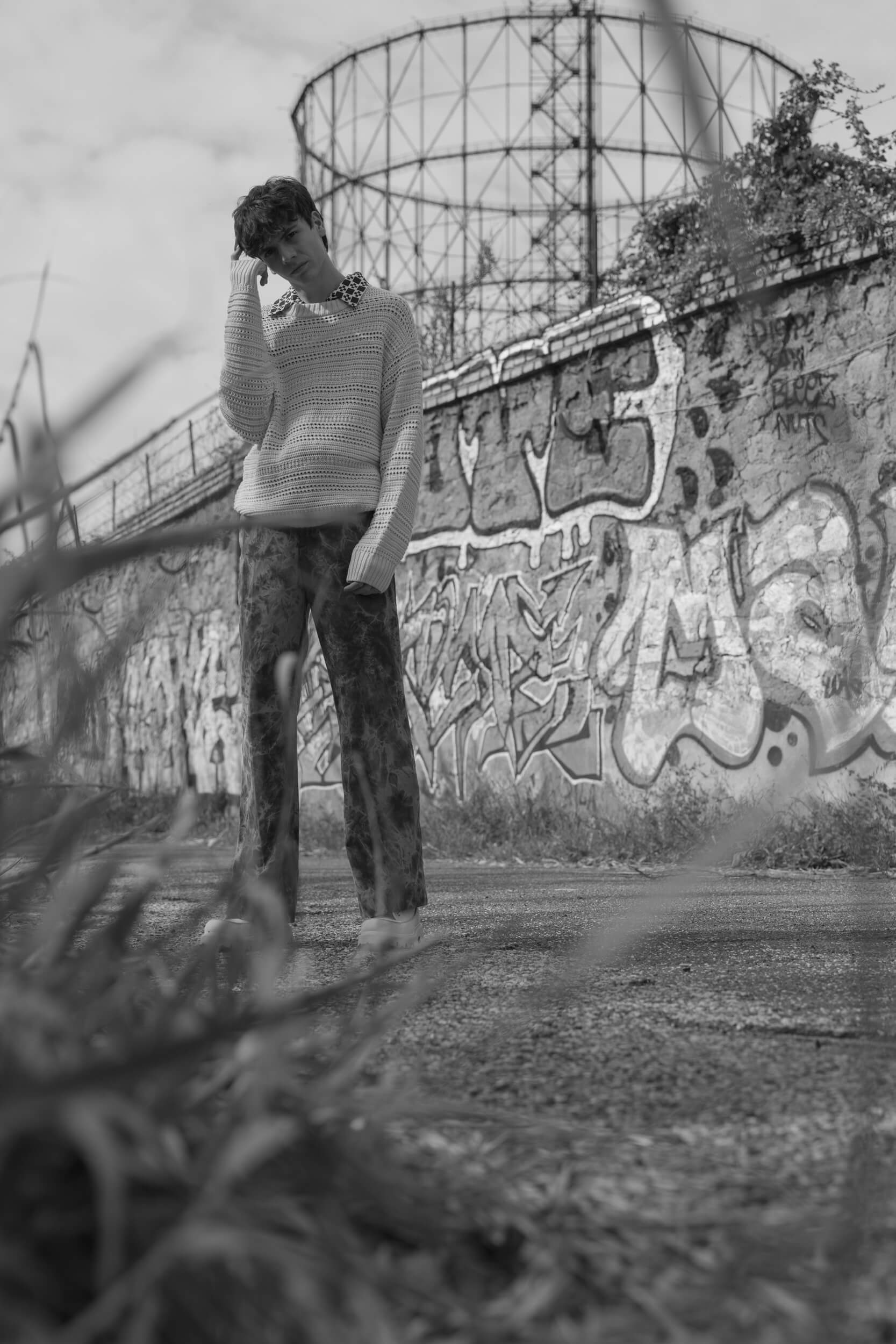
“Go out with nice people, who can give you something.”
Which real-life character would you like to play?
I’d really love to play Cleopatra.
What’s your dream collab?
A huge cast, with too many actors… So, I guess I’ll go big: a movie directed by the brothers Safdie, and Steve Carrel and Javier Bardem in the cast.
A song that describes this precise moment in your life.
A song that will forever describe my life is “Mia Ragione”, by Massimo Ranieri.
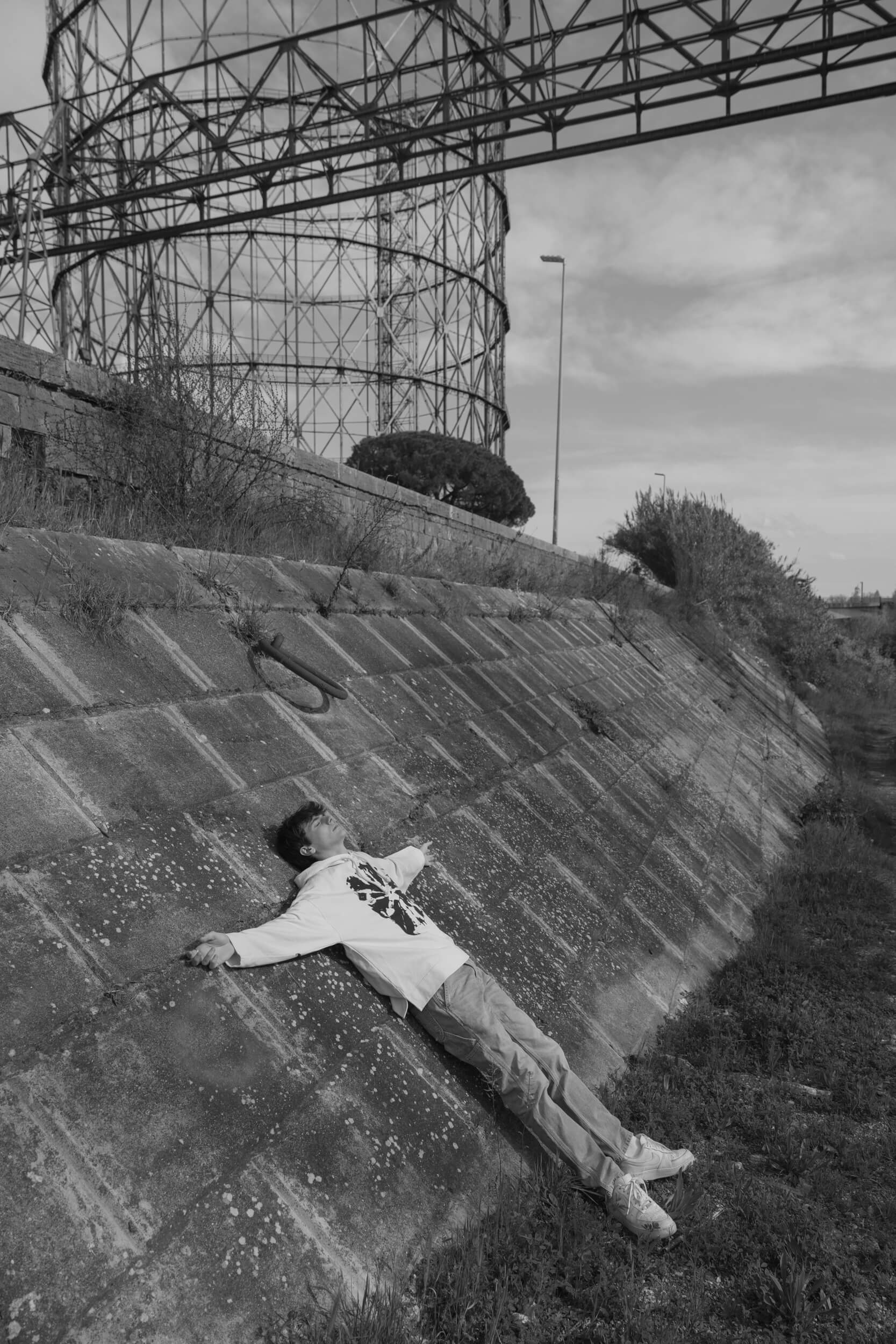
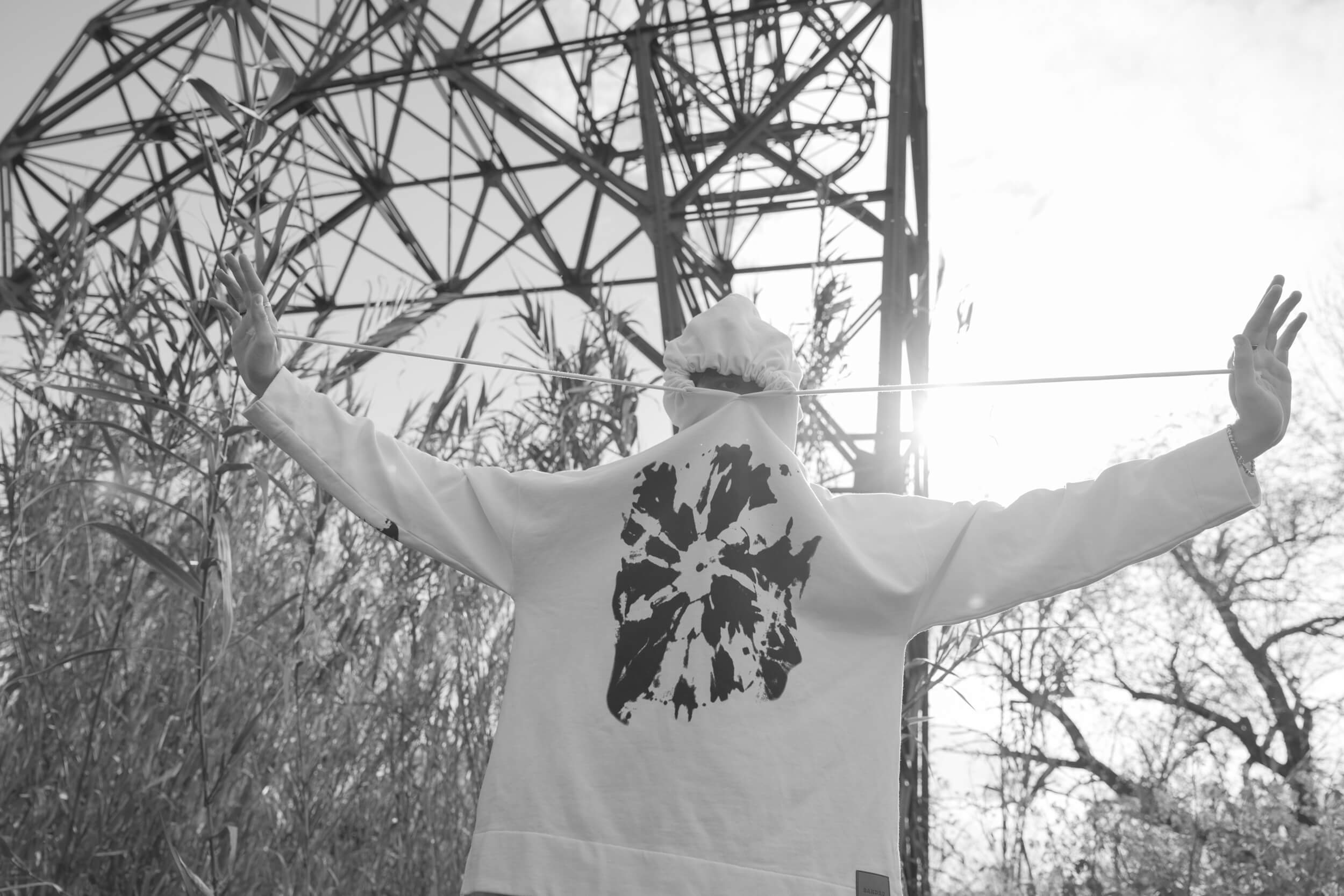
An epic fail on set.
I was on the set of “Padrenostro”, on the bike with Mattia Garaci, a boy who was 4 or 5 years younger than me, so I was responsible for him: I was riding at a 200 km/h speed and I fell; however, the scene was so funny that the director decided to use it.
Your must-have on set.
I don’t know, pizza!
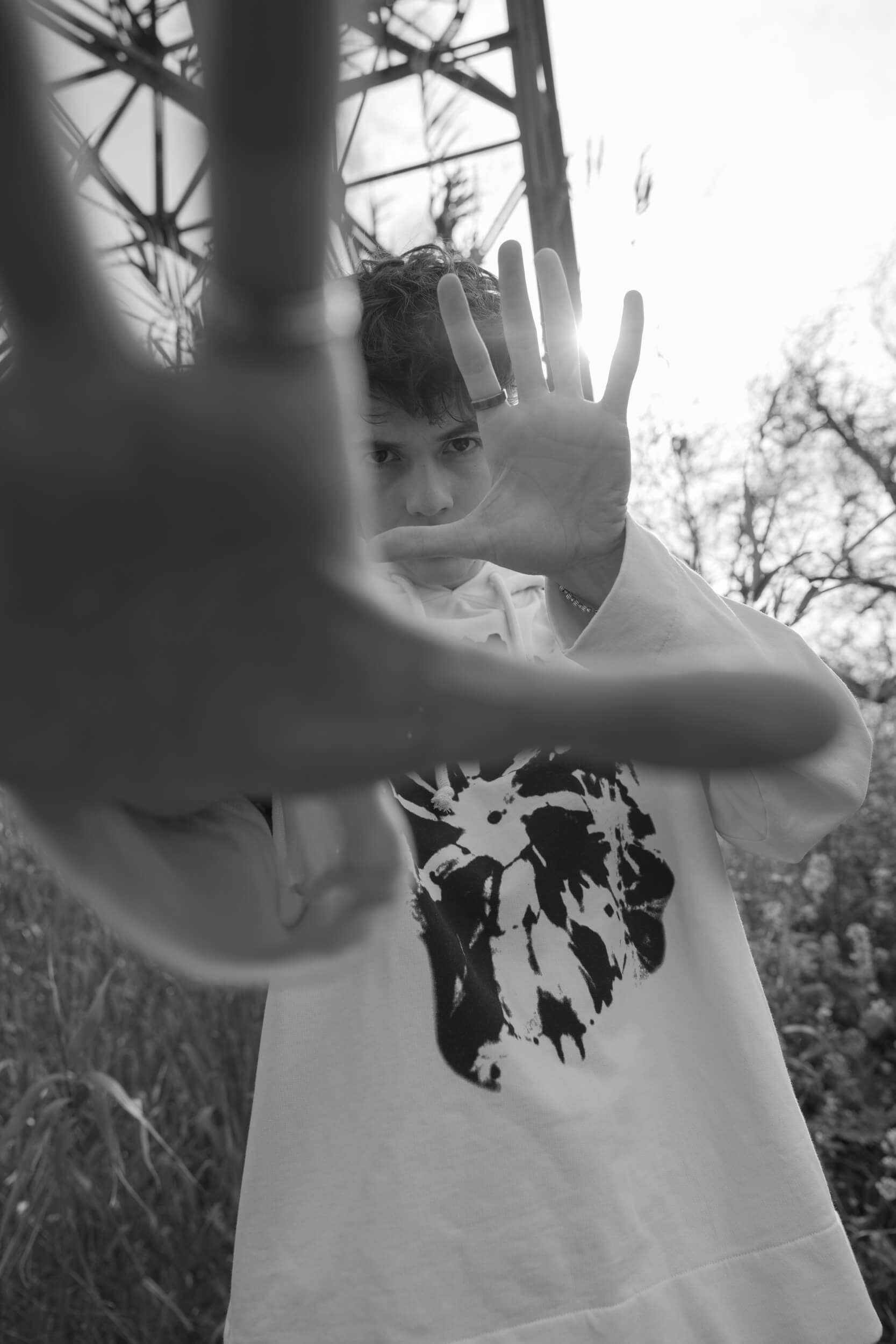
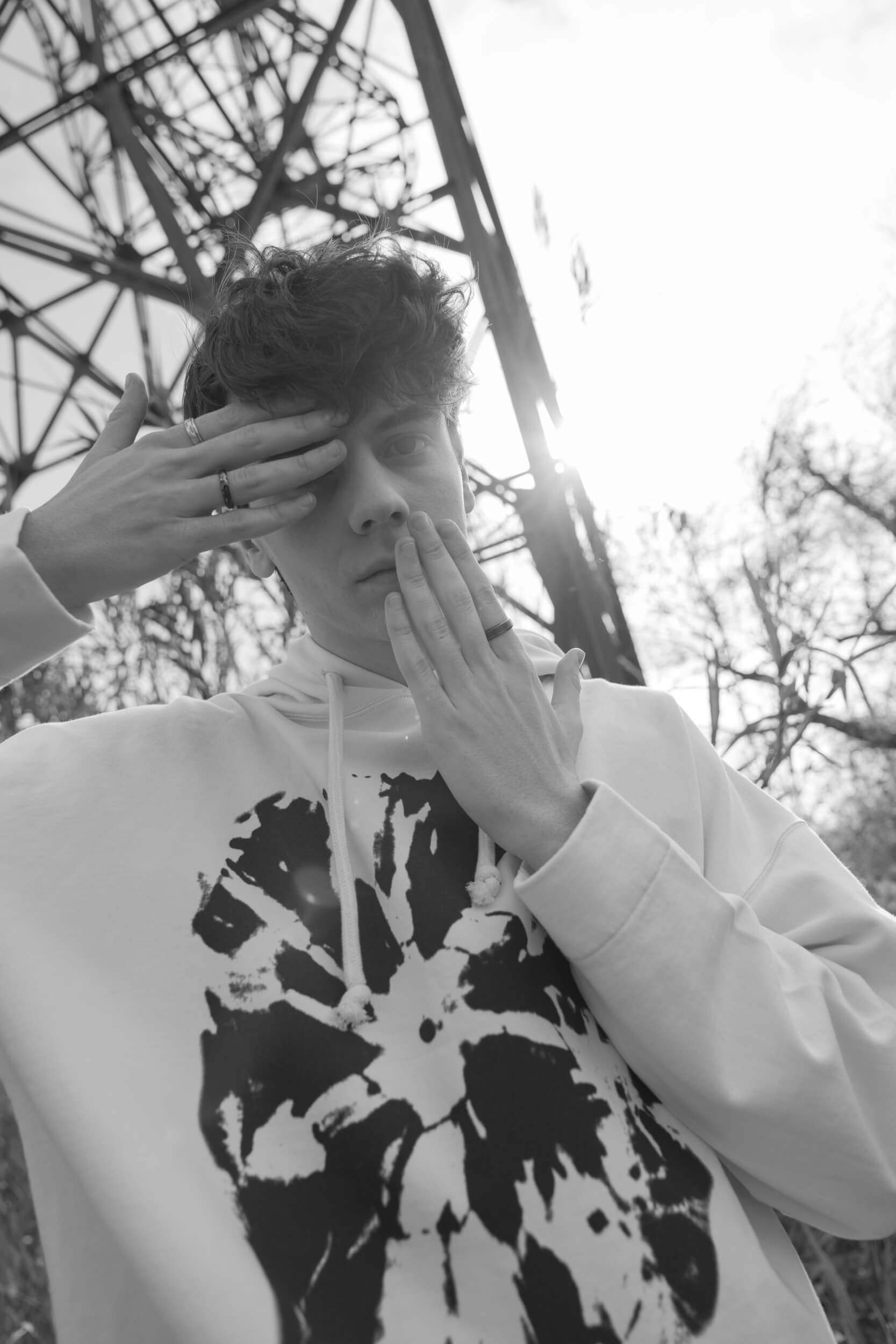
What’s the bravest thing you’ve ever done?
Go to the mortuary and say goodbye to a friend of mine who’s passed away.
What are you scared of instead?
Everything, I’m a pussy!
Your biggest act of rebellion?
Maybe just when I skipped school only because I wanted to, despite knowing that my mom would have killed me.
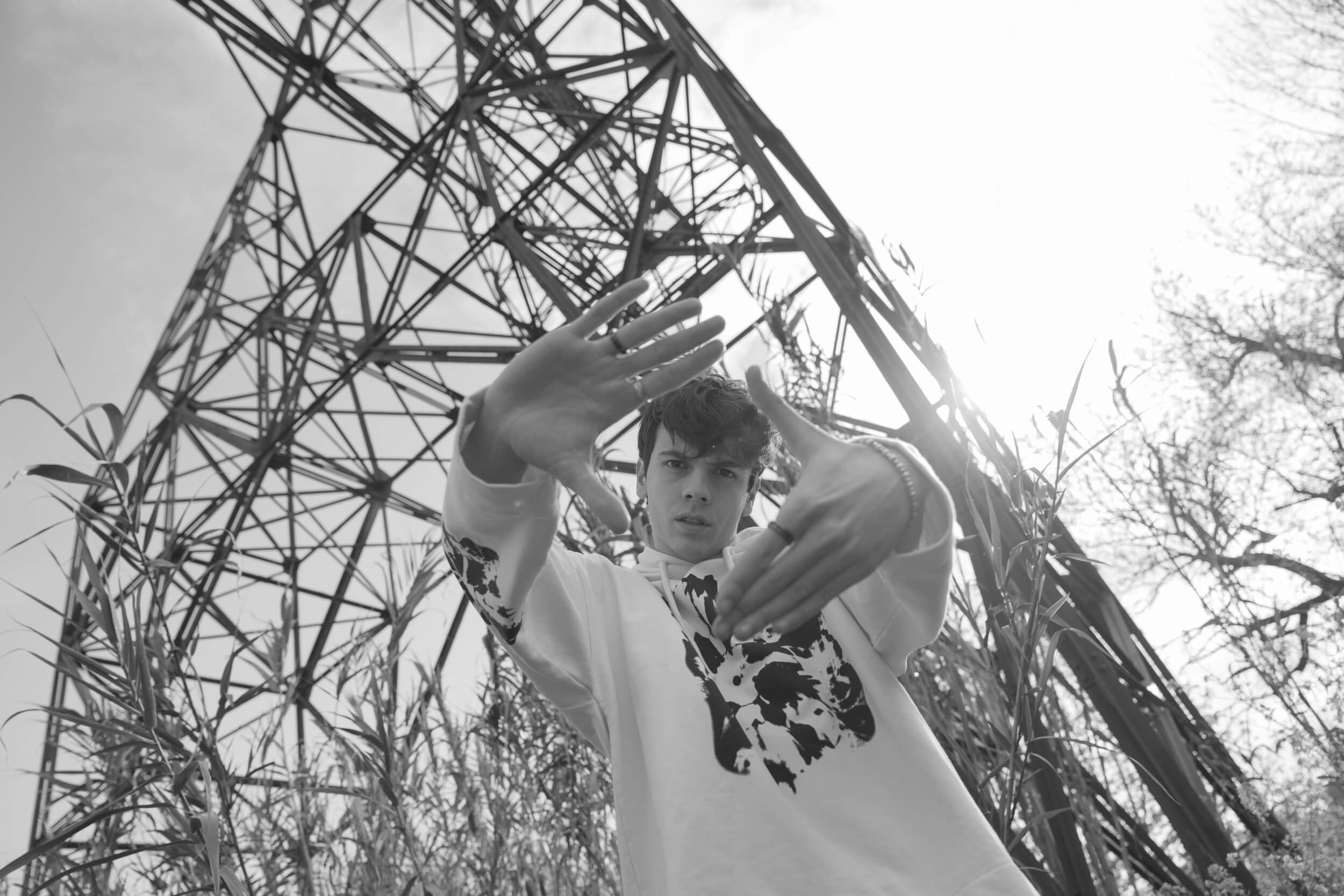
What does it mean to you to feel comfortable in your own skin?
It means feeling good about myself, being happy, and having your head, heart and belly connected.
What stories do you dream to tell?
I dream of telling gender stories, or stories that are good for your heart, true stories, emotional stories.
The latest thing or person who made you smile?
Right now, a friend of mine sitting next to me while I’m doing this interview.
Your happy place?
This one is easy: Neverland.
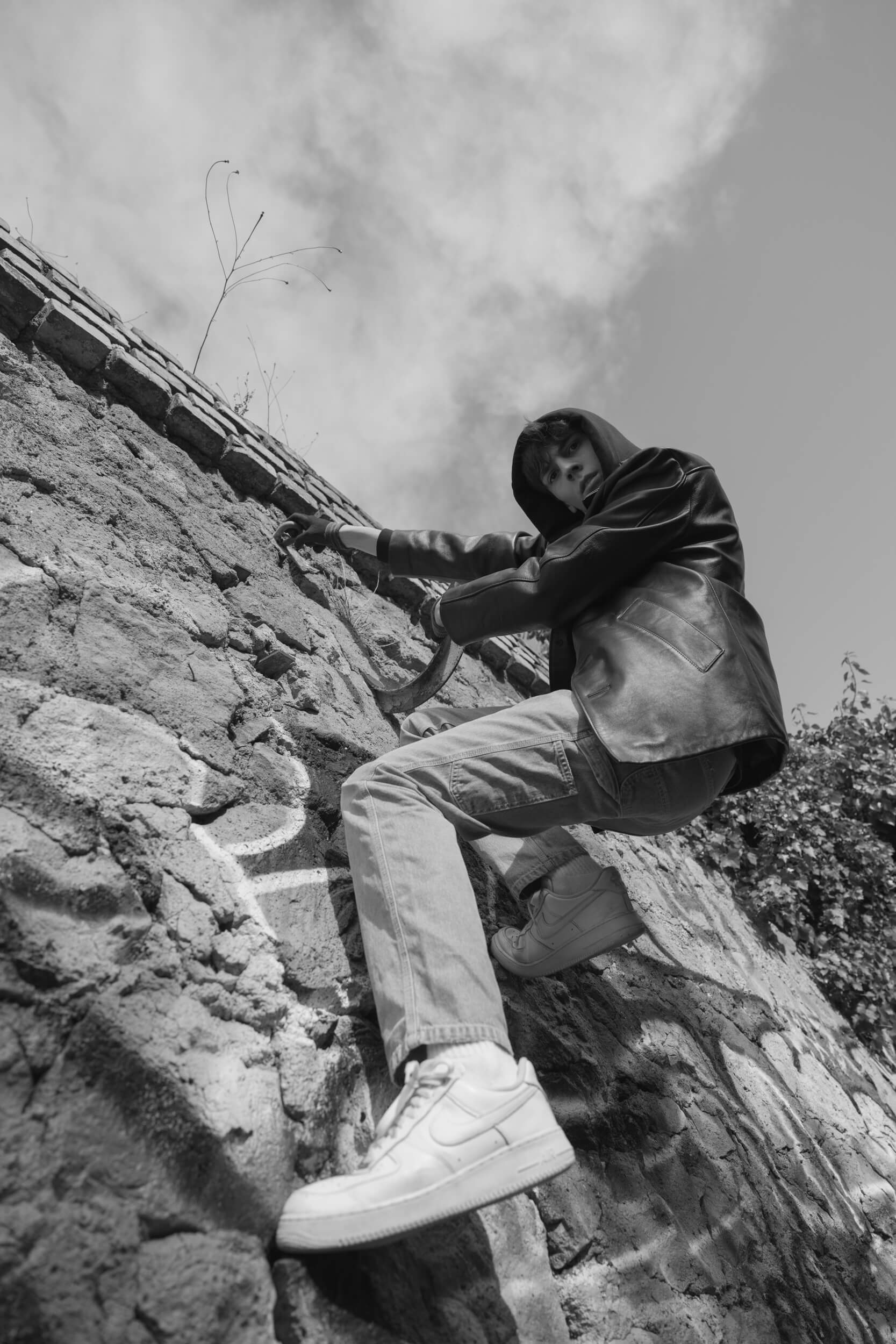
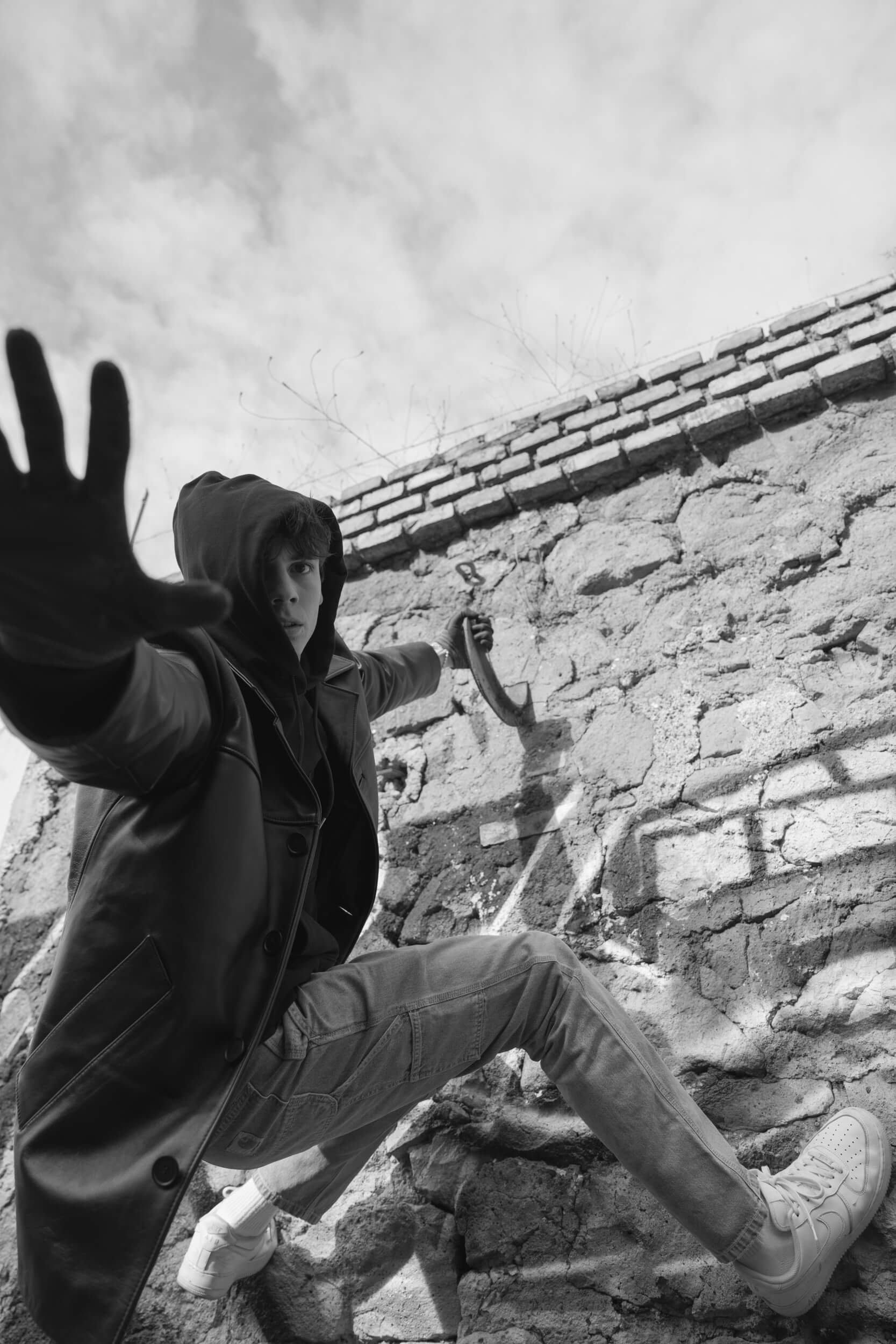
Photos by Johnny Carrano.
Grooming by Francesca Naldini.
Styling by Samanta Pardini.
Thanks to Lapalumbo Comunicazione.
LOOK 1
Total Look: Emporio Armani
LOOK 2
Shirt and Trousers: Sandro Paris
Boots: Emporio Armani
LOOK 3
Sweater, Shirt, and Trousers: Sandro Paris
Boots: Emporio Armani
LOOK 4:
Hoodie: Sandro Paris

